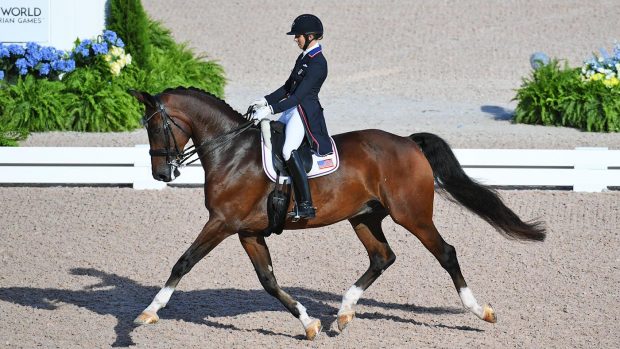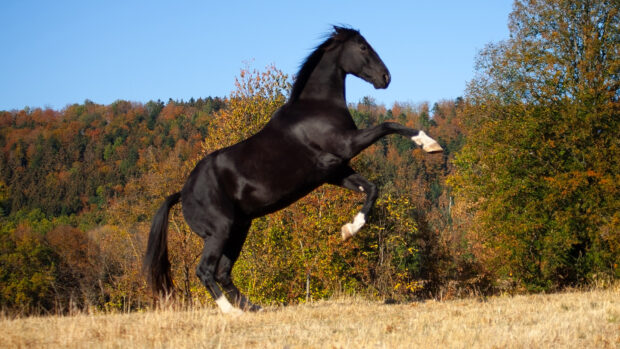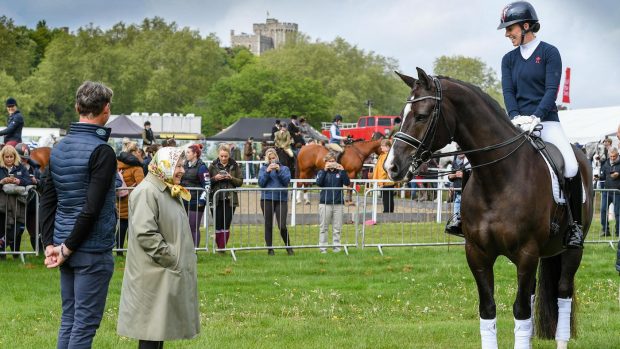Horrifying scenes of brutal treatment of horses kept in appalling conditions and a total systemic failure that puts human safety at risk were highlighted in a shocking investigation by RTÉ.
The RTÉ Investigates documentary, “Horses – Making a Killing”, aired on 12 June with an additional report in RTÉ Prime Time on 13 June. Among its findings were cases of horses’ identities being laundered, awful conditions in which 26 horses were found at Dover (news, 6 June), plus horrific undercover footage.
Part of the programme featured covert recordings from a holding site connected to Ireland’s only equine abattoir, Shannonside Foods in Co. Kildare, showed instances of a horse having markings changed with spray paint, of what appeared to be re-microchipping, and horrific treatment of equines.
Shannonside Foods Ltd said any allegation of an equine being mistreated “will be fully investigated by the company”.
When H&H went to press on Monday (17 June), operations at the abattoir had been fully suspended.
The programme’s footage is significant for two main reasons – the appalling treatment of animals, and the risks to human health of eating meat from horses that have been signed out the food chain. It also showcased the significant flaws in traceability of horses, including problems with the outdated and fragmented paper passport system.
A spokesperson for Ireland’s Department of Agriculture, Food and the Marine (DAFM) told H&H that an investigation into activities involving the supply of equines for slaughter is in progress, with support from An Garda Síochána (national police).
They added that the DAFM has suspended the operation of the plant, and that the plant is currently subject to a legal notice detaining all carcases presented for slaughter last week. The spokesperson also said that in late May, the department issued a legal notice prohibiting the presence or entry of horses to the adjacent holding premises, where much of the distressing footage was filmed.
The spokesperson said the building where the majority of the hidden camera footage was filmed does not form part of the DAFM-approved slaughter plant, adding that it “is not the lairage of the plant and not subject to direct veterinary supervision” under relevant regulations.
“The department does not have a permanent presence on equine or other farmed animal holdings, but any officer of the department authorised under the Animal Health and Welfare Act has the authority to enter and inspect premises where issues arise. All persons keeping horses are required to have an equine premises registration number,” said the spokesperson.
“The department cannot provide any further comment on these matters as they remain subject to active investigation.”
DAFM minister Charlie McConalogue added: “This is an active investigation, and while it is vitally important that I ensure that process continues without prejudice, I am stating categorically that the full rigour of the law will be applied where warranted, and no stone left unturned.
“And while, for this reason, I cannot comment in detail on the investigation, I can confirm that the following actions have been taken: no animals have entered the food chain from this slaughter plant in the past three weeks, all carcases that were presented for slaughter last week are detained and the operation of the plant is now fully suspended.
“I am committed to building on the actions already taken to improve our equine traceability and ensure the highest standards of equine welfare. In this regard, it is very clear that a collective effort across the European Union, among member states and the commission is required to further improve the traceability system.
“My immediate priority however is to ensure that the full force of the law is brought to bear in relation to these matters.”
The practices and situations brought to light have been widely condemned, including by Horse Sport Ireland and Horse Racing Ireland.
World Horse Welfare has called for “urgent action to be taken by governments and authorities”, and has also launched a petition to members of European Parliament.
Charity chief executive Roly Owers said that “what we witnessed was outrageous and proof that, well over a decade on, the horse meat scandal never truly ended”.
“These horses were let down in every way possible by an inherently flawed system and we hope that the disgust generated by the programme, alongside the food safety concerns, will be channelled into practical action by EU and UK authorities,” he said.
You might also be interested in:

Subscribe to Horse & Hound magazine today – and enjoy unlimited website access all year round
Horse & Hound magazine, out every Thursday, is packed with all the latest news and reports, as well as interviews, specials, nostalgia, vet and training advice. Find how you can enjoy the magazine delivered to your door every week, plus options to upgrade your subscription to access our online service that brings you breaking news and reports as well as other benefits.




